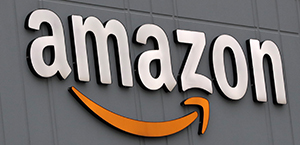
While the Japanese stock market was not immune from the turmoil induced by the spread of the coronavirus in recent months, there are opportunities for investors looking for long-term trends.
Managers investing in the region say that after the Nikkei logged its biggest fall in 30 years, a number of companies are trading at incredibly attractive prices. Here are four trends to track in Japan:
Technology
Japan is surprisingly behind other other developed countries when it comes to some tech trends. Transactions are still largely made in cash, for example, where contactless and digital payments lead the way elsewhere.
Adrian Hickey, manager of the Pictet Japanese Equity Selection fund, thinks software companies are set to benefit as the country plays catch-up. A shortage of engineers means demand outstrips supply in the sector and "coronavirus has shown companies they need to invest in their IT networks and infrastructure", he says.
Already, companies were having to cope with the increase in data volume, and are shifting away from local storage to the cloud and the Covid-19 crisis will only exacerbate these trends. “Working from home has accelerated the shift. The demand is stronger and it’s a great area for opportunities,” adds Hickey.
He has taken advantage of the market fall to increase his investments in NetOne Systems and Nomura Research Institute. The first is playing a key role in this shift toward cloud solutions. “Shares were already undervalued and they have fallen quite a way,” he says. Meanwhile, Nomura is a Tokyo-headquartered consultancy firm that helps the digitalisation of businesses: “The chief executive is very comfortable with the outlook post-covid crisis, that there will be demand going forward.”
Nicholas Price, manager of the four-star rated Fidelity Japan Trust (FJV), also likes this sector. His portfolio has a strong tech bias, but the manager focuses on businesses with strong balance sheets and operating in areas with secular growth stories. "I think there is a good chance these businesses will lead us out of this, as demand for their services is likely delayed rather than foregone.” He points to Tokyo Electron, a leading player in semiconductor production equipment, as one example of this.
Consumer Staples
Consumer staples are essential products that households still purchase regardless of the economic environment; food, drinks and cleaning products, for example. It's an area Stefanie Mollin-Elliott, analyst on the Gold-Rated Uni-Global Equities Japan, particularly likes for its defensive qualities.
Mollin-Elliott rates Kao, which specialises in cosmetic skincare products. “Regardless of the economic environment it does well,” she says. “Skincare products benefit from a demographic perspective: because of the ageing population, more and more people are concerned about their skin.” Growing wealth in emerging markets, which Kao sells to, is another key driver for the company as consumers have more money to spend on discretionary items. Chinese consumers in particular tend to approve of the quality of the cosmetics produced in Japan.
And an ageing population isn't just a tailwind for obvious areas such as healthcare and cosmetics. Mollin-Elliott thinks even convenience stores are beneficiaries of the changing habits of this group: "Older people often prefer pre-prepared food rather than cooking for themselves and doing smaller, regular shops rather than a weekly trip to a large store." For these reasons she likes convenience store chain Lawson and drug store Cosmos Pharmaceutical.
Telecoms
If it's an ageing population driving consumption, it's those still in work driving the telecoms industry. The rollout of 5G is set to be particularly important with more people working and socialising virtually while lockdown continues. “It was an important theme before the pandemic, but even more so now that we have more people relying to it,” says Mollin-Elliott.
She invests in telecoms firms NTT and KDDI, which are set to benefit from the greater importance households are placing on faster, reliable internet and data services.
Price, meanwhile, thinks the shift to 5G is a major opportunity for the companies making the components that keep all of our tech working. "We like Murata, a leading designer, manufacturer and supplier of advanced electronic materials, components and multi-functional, high-density modules," he says. "The company’s products can be found in mobile phones."
Medical Devices
The top-heavy nature of Japan's population means there has been a vast amount of investment in medical technologies in recent decades. The fact that Covid-19 appears to disproportionately affect the elderly should only enhance this investment.
Nicola Takada Wood, portfolio adviser on the five-star RWC Japan Focus fund, likes healthcare companies such as M3 and Asahi Intecc. “I like companies that are niche leaders in their fields, large market share and high quality management,” she says.
M3 is a global website used by more than 3.5 million doctors across Japan, the US, China and other countries to find medical studies, look up drug information and for networking purposes. Asahi Intec,meanwhile, supplies high-quality medical products used in catheter treatment such as guide wires, guiding catheters and balloon catheters.
She adds: “For the most part, the areas I see opportunities in today are the same ones as before coronavirus. Many of those opportunities have come about because of long term structural changes such as in the demographic and consumer behaviour."
Meanwhile, in medical technology, Price likes maker of endoscopes Olympus and clinical testing equipment maker Sysmex.





























